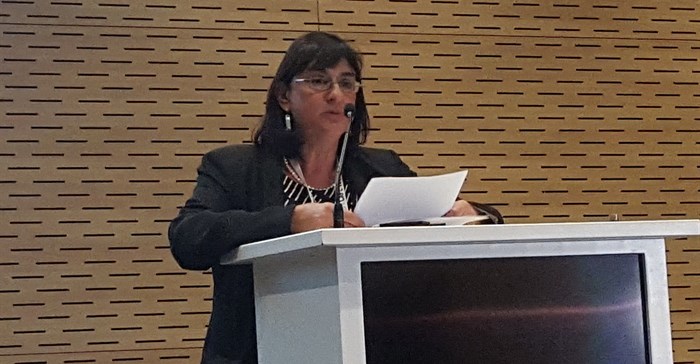
Subscribe & Follow
#AfricaMonth
Jobs
- Journalist Johannesburg
- Producer/Client Liaison Johannesburg
In the news
Collaboration needed within the one economy - Joanne Yawitch

Yawitch was part of the speaker lineup at the recent Sustainable Brands Cape Town conference.
“We talk about a green economy, a blue economy, a circular economy, but in reality, there’s only one economy and if it’s going to take care of all our social and environmental imperatives, we need to work together to develop and implement solutions for the common economy rather than believing by tinkering on the edges we’re going to achieve any substantive change,” said Yawitch.
It’s time for the environmental movement to join the mainstream, she said, and in order to do so, collaboration is needed among all sectors. To attain scalable action, the conversation needs to define what needs to be done. The NBI facilitates these necessary discussions that tackle economic and social transition.
$350bn opportunity in Africa
The institute, on behalf of one of its member companies, did a conservative modelling of the opportunity in sustainability in Africa. The report, titled Reimagining Africa’s future: The $350 billion opportunity for sustainable business, concluded that the sustainability opportunity would be worth at least $350bn per year. In order for businesses to obtain some of that, conversations need to be had around new products, new approaches, new markets, and the relationship between business and communities, said Yawitch. “That would really enable us to find win-win solutions in terms of the development of the continent on the one hand and the interests of individual companies on the other.”
The report offers a basic blueprint for transformation supported by case studies from sectors across the continent. “We’re excited about sustainable brands for the same reason we were excited about that work - because of the fascinating examples and suggestions on how to implement new models and the need for active engagement in doing so,” said Yawitch. It’s all about thinking big, thinking differently, building new capacity, and integrating it into operations and business models, she continued. “Sustainability doesn’t just happen in your company by chance, you need to make it happen.”
Developing the economy we want
While the prefixes being attached to the economy reflects bias, it communicates the same thing, said Yawitch: "The economy that we have is not the economy that we want."
“We need a set of frameworks and vocabulary to enable us and, while it’s useful to provide focus by dividing up the economy into communicable chunks and colours, we need to keep in mind that ultimately, we have to engage with, understand, and operate within the complexity of the single economy. We have to aim to achieve change across all of it if we’re going to succeed,” said Yawitch.
We can’t go it alone, she said, all ambitions need to link up through collaboration in thinking, planning, and delivery.
The National Development Plan 2030, along with the UN Sustainable Development Goals, provide an outline of the world’s principle challenges, allowing us to gauge where contributions and collaboration are needed.
Real progress in the real economy
The NBI, a year ago, hosted 13 multi-stakeholder workshops throughout South Africa with over 130 people from 70 organisations in various sectors. Together, they identified 126 priority investment areas that had the potential to make substantial contributions to the sustainability challenge. These priorities were whittled down into six key areas. The next step involved bringing a diversity of experts together in order to develop more far-reaching, innovative solutions. The NBI are now working to take these solutions forward. View the report.
“We work with stakeholders to drive real progress in the real economy, in the one economy,” Yawitch emphasised, “demonstrating business leadership and innovation, building trust through action, and showing that the sustainable transformation of the real economy can be a mainstream activity that is achievable.”
Joanne Yawitch has been the CEO of the National Business Initiative (NBI) since March 2011. Prior to this she was a deputy director general at the Department of Environmental Affairs with responsibility for environmental quality and protection, as well as for the Department’s Climate Change work.
The NBI is a business coalition of leading South African national and multi-national companies, working together towards sustainable growth and development in South Africa through partnerships, practical programmes and policy engagement.
For more information on the Sustainable Brands Conference, click here.
















